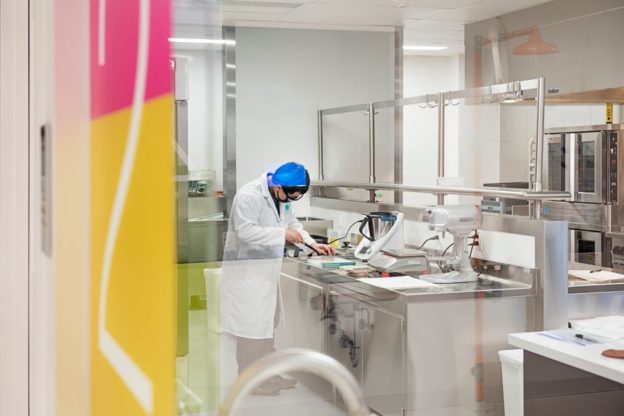- Covid-era supply chain disruptions have helped push venture capitalists to invest in industrial tech start-ups that are offering solutions.
- A record $45.1 billion has been raised by industrial start-ups so far this year, compared with the $34 billion raised in all of 2020, according to data from PitchBook.
Supply chain disruptions are hitting some of the most powerful companies in the world, pushing venture capitalists to invest in industrial tech start-ups that are offering solutions.
So far this year, a record $45.1 billion has been raised by industrial start-ups, compared with the $34 billion raised in all of 2020, according to data from PitchBook.
“The market is red hot right now,” Bilal Zuberi, partner at Lux Capital, told CNBC in an interview. Lux has $4 billion of assets under management.
Lacking a sexy story and consumer-facing products, industrial companies have long struggled to attract venture capital interest.
But the recent surge in supply chain bottlenecks, logistical issues and factory shutdowns during the Covid pandemic has pushed Lux Capital, GGV Capital and General Catalyst, among other reputable VCs, to invest in cutting-edge start-ups that specialize in predictive technology, software and artificial intelligence.
Driving more investor funds in this space is a broader understanding of how serious these issues are, according to Dave Evans, CEO of Fictiv, an on-demand manufacturing company based in San Francisco.
“Supply chain issues used to be a functional problem. Only people in supply chain knew about supply chain issues,” Evans said. “Then when the pandemic hit, they became broad issues and actually started to affect consumers.”
Increased awareness around supply chain constraints continues to grow as companies such as FedEx and Nike reference the impact the backlog is having on their business.
Lux Capital has allocated $150 million to $200 million in industrial companies such as Veo Robotics and Nozomi Networks this year. Nozomi, which specializes in cybersecurity for the industrial sector, just raised $100 million in a Series D round from a group of investors including GGV Capital and Honeywell.
Edgard Capdevielle, CEO of Nozomi Networks, told CNBC his company is considering going public through a reverse merger with a special purpose acquisition company or a traditional initial public offering.
A growing number of industrial businesses that aim to solve supply chain issues with robotics, 3D printing and artificial intelligence have gone public this year.
- IronNet and 3D printer maker Markforged went public via SPACs this year.
- Israeli startup Prospera, which makes artificial intelligence sensors to aid farmers in monitoring crops, was acquired by U.S.-based firm Valmont Industries for $300 million.
Glenn Solomon, managing partner at GGV Capital, said his fund has already invested more than $300 million in 20 industrial-focused companies since 2014. But VCs are being met with competition from the publicly listed industrial stalwarts.
- Honeywell‘s VC arm remains very active in 2021, putting money into Fictiv in addition to Nozomi.
- Deere & Co. continues to invest in technology, from robotics to drones. The agriculture equipment maker recently acquired Bear Flag Robotics for $250 million. Bear Flag specializes in lidar and camera sensors that enable tractors to work in the field autonomously.
Zuberi said the pending U.S. infrastructure bill would also be a boon for an industry that’s yearning for more capital investment from the public and private sector.
https://www.cnbc.com/amp/2021/10/11/venture-capitalists-chase-industrial-tech-start-ups-as-supply-shocks-widen.html





